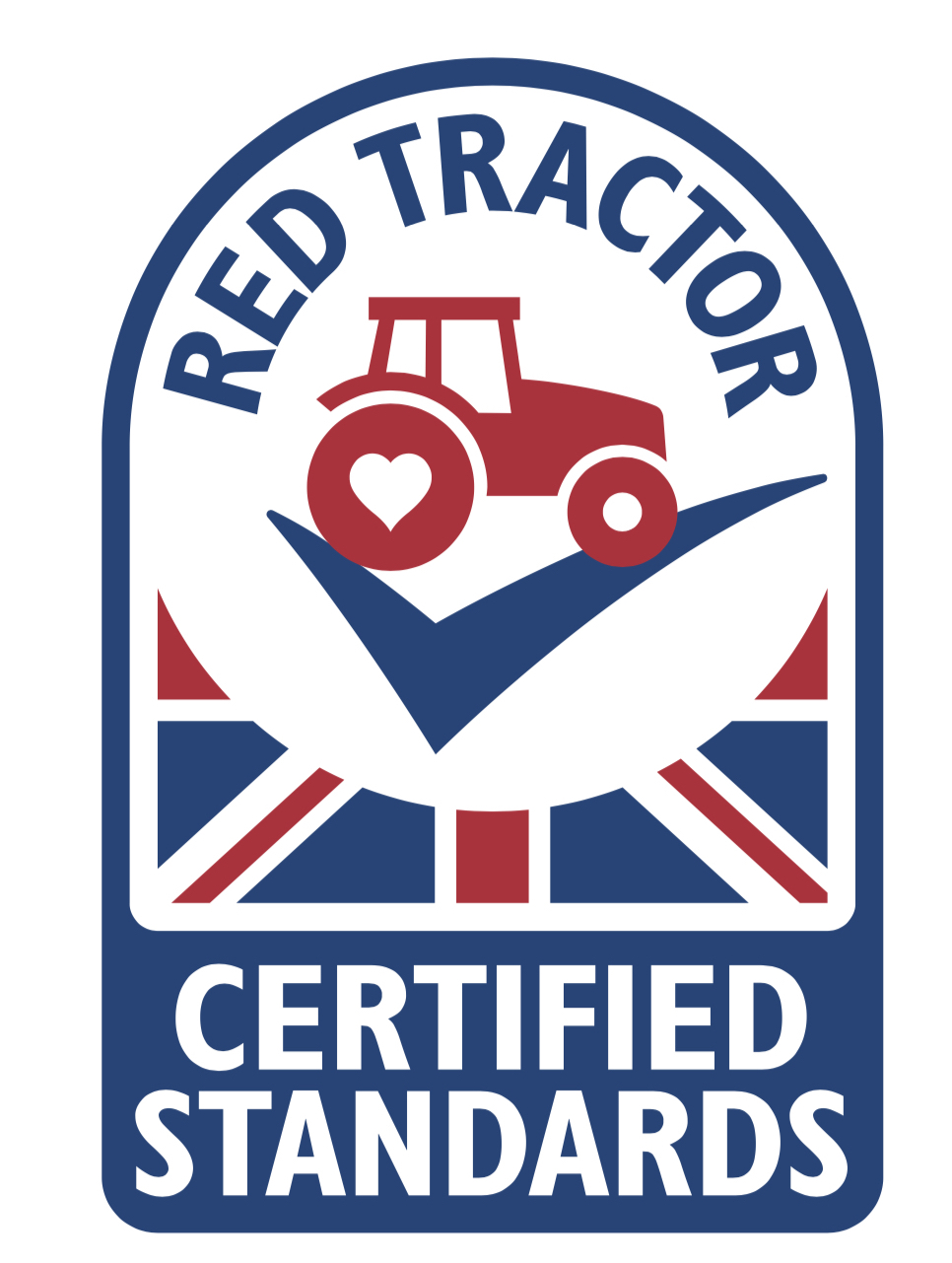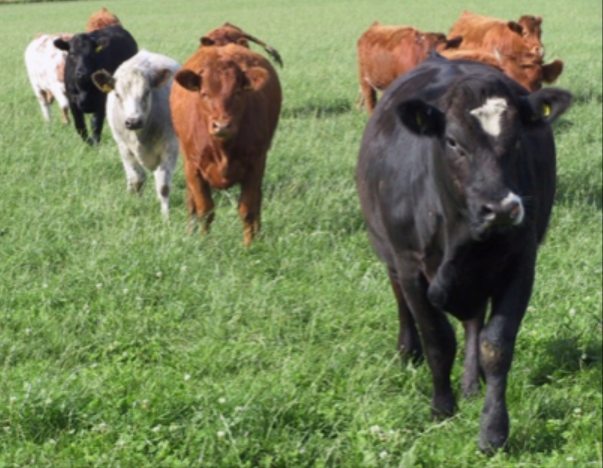



Red Tractor revises farm standards to equip British agriculture for the future
Red Tractor, the UK’s largest and most comprehensive food assurance scheme, has shared how it has listened to feedback and outlined what is changing in its revised farm standards from November.This year for the first time in its history, Red Tractor opened the process to its 46,000 members and the entire food supply chain, making it the biggest and most transparent consultation ever.

The proposals sought to engage as many people as possible across the Red Tractor supply chain to streamline standards, comply with legislation, meet changes in consumer demand, and provide clarity for both farmers and their assessors.
The consultation followed a rigorous three-staged process adhering to the gold standard recommendations of the British Standards Institute - committee, consultation and consensus.
Over 3,000 pieces of feedback were fed into the technical advisory committees and sectors boards for consensus, before being agreed by the main Red Tractor board. This differentiated our approach and saw certain proposals dropped, while others were simplified and clarified.
Some new standards have been added because of legislation change, such as an amendment to vermin control standards to comply with food safety law, or industry commitments to improving animal welfare, including the wider dairy sector’s pledge to eliminate the routine euthanasia of calves by 2023.
The industry spoke and we listened
Red Tractor’s CEO Jim Moseley said: “We set out to hear from all stakeholders and to engage as much of the farming community as possible, and I’m delighted by the amount of feedback that was generated by the review. This has been enormously helpful for informing the work to finalise the new version of the standards.

“Our standards need to achieve two key objectives - first to meet the needs of consumers who expect high standards but shop keenly on price, and second to provide farmers and the supply chain with manageable standards. Getting that balance right then also satisfies the needs of food businesses and government.
“With its structures of sector boards and technical committees, and through the comprehensive feedback of the consultation, Red Tractor is in a fortunate position to achieve that crucial balance that benefits the UK food supply chain.”
Key changes in each sector
Beef & Lamb
- New: Following recommendations from the Farm Animal Welfare Council and European Food Safety Authority (EFSA), tethered housing systems, for stock of any age, will not be permitted on Red Tractor Farms. In the short term, derogations will be offered, and visits will be made to the small number of members still tethering their cattle.
- New: Farms will be asked how they are taking action to eradicate bovine viral diarrhoea (BVD). This needs to be documented in a health plan and implemented. This new recommendation will become a full standard from October 2022, allowing members a lead time for a change in system or testing routine, where necessary to control endemic disease.
- New: All farms with workers must have a written Health and Safety policy – this is a slight advance on the legal baseline which only applies to businesses with more than five employees. Given high fatality figures in the industry Red Tractor believes it is essential to check policies are in place and communicated to workers.
- New: Efficient and meaningful health planning builds on management techniques for continuous improvement and encourages a move to a proactive management system. The health plan now needs to be signed, dated and reviewed annually by a nominated vet who should visit the farm at least once a year.
- Upgrade: At least one person on farm must have undertaken medicine training to help raise awareness of antimicrobial resistance and drive medicine use best practice. This is currently a recommendation and follows similar change to Dairy sector in 2019.
Dairy
- New: Following recommendations from the Farm Animal Welfare Council and European Food Safety Authority (EFSA), tethered housing systems, for stock of any age, will not be permitted on Red Tractor Farms. In the short term, derogations will be offered, and visits will be made to the small number of members still tethering their cattle.
- New: In 2020 Red Tractor consulted on proposed standards to ensure the industry delivers on a commitment to eliminate the routine euthanasia of calves by 2023. A new standard is focused on a written breeding and management policy.
- New: Efficient and meaningful health planning encourages a move to a proactive management system. A health plan now needs to be signed, dated and reviewed annually by a nominated vet, who should visit the farm at least once a year.
- New: All farms with workers must have a written Health and Safety policy – this is a slight advance on the legal baseline which only applies to businesses with more than five employees. Given high fatality figures in the industry Red Tractor believes it is essential to check policies are in place and communicated to workers.
Stuart Roberts, NFU deputy president, said: “It has never been more important for British agriculture to be in tune with the public. Following feedback from the NFU and farmer and grower licensees, Red Tractor has developed the right standards to progress our industry, while balancing the needs of farmers with the evolving demands of shoppers and the supply chain.
“Going forward I would like to see Red Tractor embrace the eight principles that NFU has set out for future standards development.”
Nicholas Saphir, AHDB chief executive, said: "Effective assurance and hence consumer confidence in British produce is essential for the marketing work we do, spending levy payers funds on defending the reputation of our industry.
“Marketing support for our standards at a time of free trade agreements and open doors depends on the industry working together to ensure assurance standards and inspections are effective and relevant, amending standards and approaches where needed.
“It is good to see Red Tractor removing and simplifying standards where they are not adding value, and introducing new ones where consumers' genuine concern and retailers' response allow us to maintain and develop a profitable market share for farmers and growers.”

Industry reaction
Andrew Laughton, National Beef Association chair said: “The revised standards are a real opportunity to demonstrate how committed we are to continually improving how we meet customer requirements and protect the beef industry.
“New standards are in place to help tackle issues like BVD, which costs the UK cattle industry up to £75 million a year. It is important that as a sector we manage, and have in place plans, to do all that we can to eradicate the spread of this disease.”
Judith Bryans, Dairy UK chief executive said: “It’s important that as an agricultural sector we’re always moving forward and refining and improving on what we do. We know standards and welfare are important for consumers and quite rightly so. It’s a source of pride within UK agriculture that we constantly push the boundaries on continuous improvement in welfare best practice. The updates Red Tractor has made to its standards, following its consultation, mark another milestone in our progress forward.”
Bolt-on modules
While changes to Red Tractor’s core standards mean members keep pace with mainstream market demands, there are some end-users who will require farmers and growers to demonstrate their business credentials on the important issues of worker welfare and sustainability.

In response to feedback during the consultation, Red Tractor will develop optional modules in these areas which bolt on to the core standards. Further information on how the modules will be developed and when they will be launched, will be available next year.
Jim Moseley added: “One of the key themes from the review was the appeal for Red Tractor to provide some flexibility within the schemes.
“This proposed approach will deliver the right standards across the supply chain which could deliver even greater market access for our farmer members with minimal impact on the audit burden. We will continue to work with our supply chain customers to explore how this could be delivered effectively.”
Andrew Opie, British Retail Consortium chief executive, said: “Customers trust us to make sure the food that gets to their plate has been produced to the high standards they expect. This fifth standards review has given us another opportunity to listen widely to everyone's viewpoint. It is important the standards don’t stand still, and we look forward to more progress on climate change and ethical labour over the next few years."



